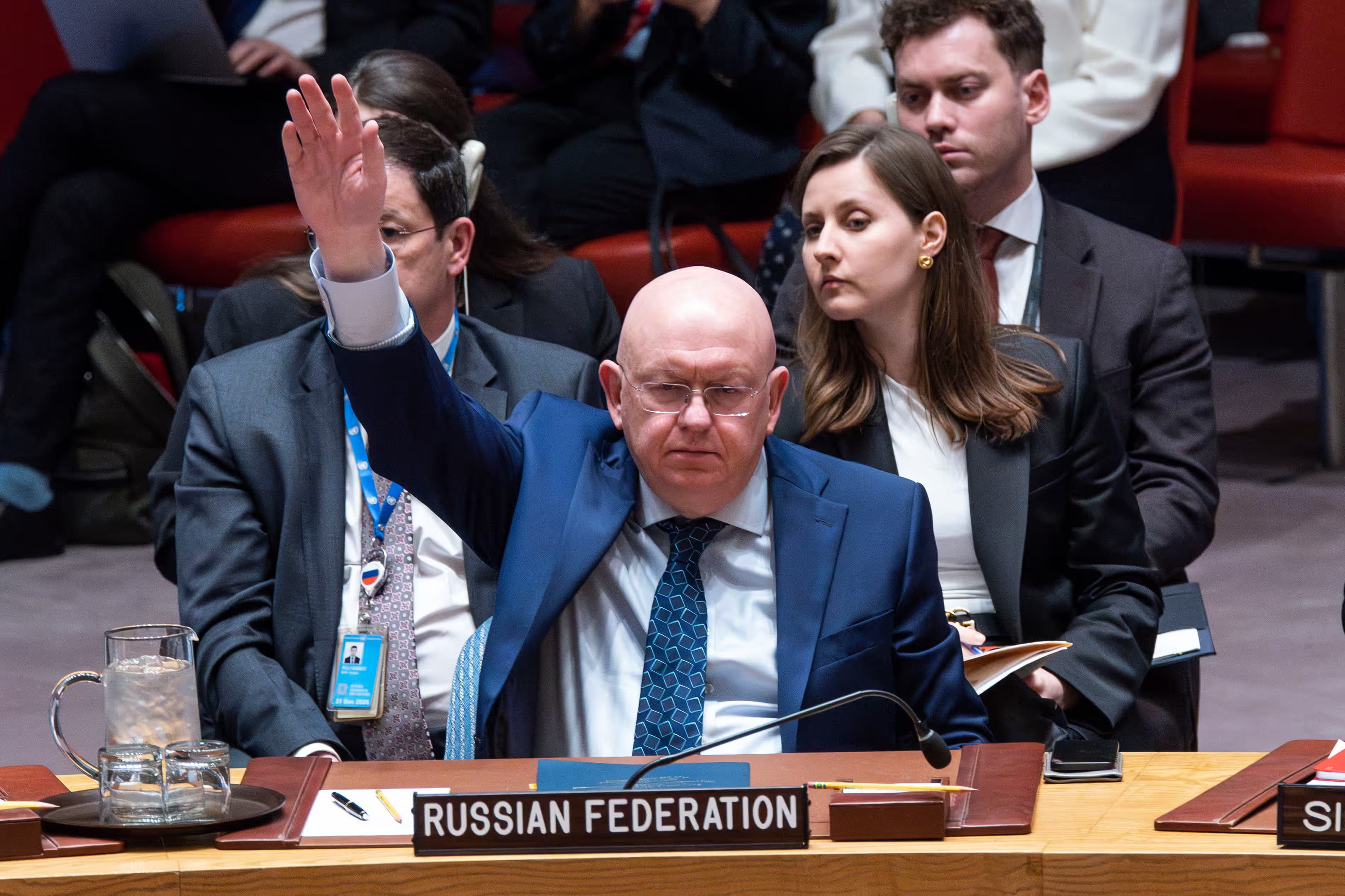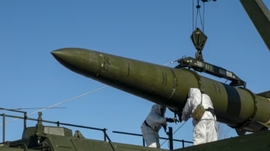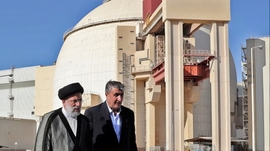A draft resolution aimed at preventing the development and deployment of weapons of mass destruction (WMDs) in outer space, co-sponsored by Japan and the United States, faced a setback at the United Nations Security Council as Russia exercised its veto power.
Despite receiving 13 votes in favor, the resolution, supported by 65 member states, failed to garner the necessary backing. Russia’s opposition, along with China’s abstention, led to the resolution’s downfall.
The resolution would have called on all countries not to develop or deploy nuclear arms or other weapons of mass destruction in space, which are already banned under the 1967 Outer Space Treaty.
Russian Ambassador to the UN Vasily Nebenzya criticized the resolution, labeling it as “absolutely absurd and politicized.” Nebenzya argued that the resolution did not go far enough in prohibiting all types of weapons in space, echoing Russia’s long-standing stance against the militarization of outer space.
Prior to the vote, Russia and China proposed an amendment that sought to broaden the resolution’s scope by urging all countries to prevent the placement of any weapons in outer space, not just WMDs. However, the US opposed it, and after the vote, Nebenzya stated, “We want a ban on the placement of weapons of any kind in outer space, not just WMDs.”
Earlier in April, Nebenzya stated that the United States and Japan oppose the inclusion in the draft Security Council resolution on the non-deployment of nuclear weapons in space of a clause on the refusal to deploy any types of weapons there.
“They want to include a requirement to not develop nuclear weapons specifically designed for deployment in space, but they are opposed to a broader similar commitment to place any type of weapon there,” Nebenzya said.
In early March, Russian President Vladimir Putin emphasized Moscow’s commitment to upholding existing agreements prohibiting the placement of nuclear weapons in outer space.
“Our position is clear and transparent: we have always been categorically against and are now against the deployment of nuclear weapons in space,” he said. “We urge not only compliance with all agreements that exist in this area but also offered to strengthen this joint work many times.”
Russian Defense Minister Sergei Shoigu reported that the Russian Federation does not have a project to create nuclear weapons to destroy objects in space. Governments have increasingly viewed satellites in Earth’s orbit as crucial assets that enable an array of military capabilities on Earth.







 Russia is set to conduct military exercises to practice the preparation and deployment for use of tactical nuclear weapons in response to the “prov...
Russia is set to conduct military exercises to practice the preparation and deployment for use of tactical nuclear weapons in response to the “prov...
 Iran confirmed that Afghanistan's first transit rail cargo has left for the Razi border crossing, in the country’s northwest region, following a ha...
Iran confirmed that Afghanistan's first transit rail cargo has left for the Razi border crossing, in the country’s northwest region, following a ha...
 The modernized and expanded Georgian segment of the Baku-Tbilisi-Kars (BTK) railway is set to recommence freight operations this month.
The modernized and expanded Georgian segment of the Baku-Tbilisi-Kars (BTK) railway is set to recommence freight operations this month.



